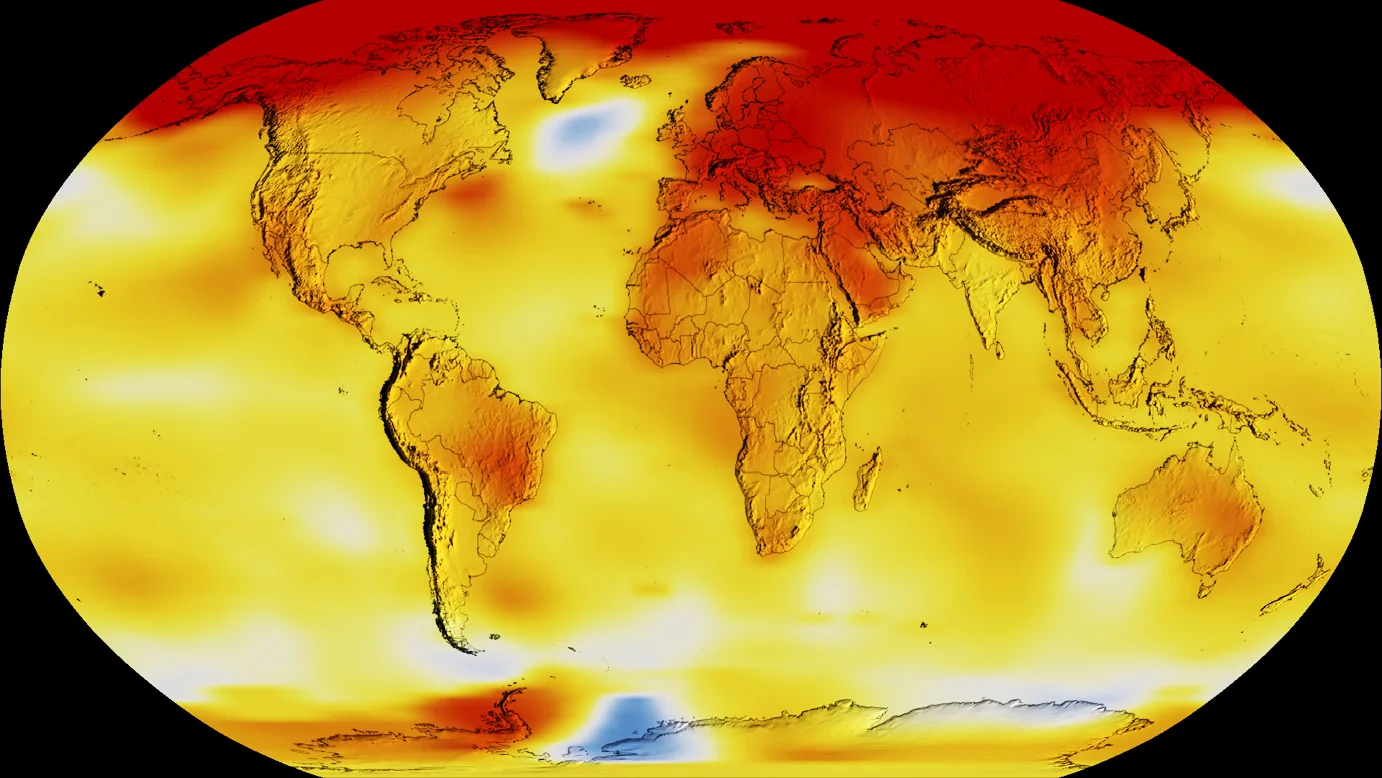
2020 nearly beat out all the hottest years in the record books
The planet was a hair's breadth from logging a new hottest year on record.
Global temperatures in 2020 came so close to setting a new record that climate scientists are actually split on whether it beat, tied, or came in second to 2016.
It is too close to call, definitively. With all of the temperature data tallied from last year, the major climate agencies have now reported on where 2020 landed on the list of warmest years on record.
According to Europe's Copernicus Climate Change Service, it was a tie, with both 2020 and 2016 global average temperature being 1.25°C above what they were in the pre-industrial era.
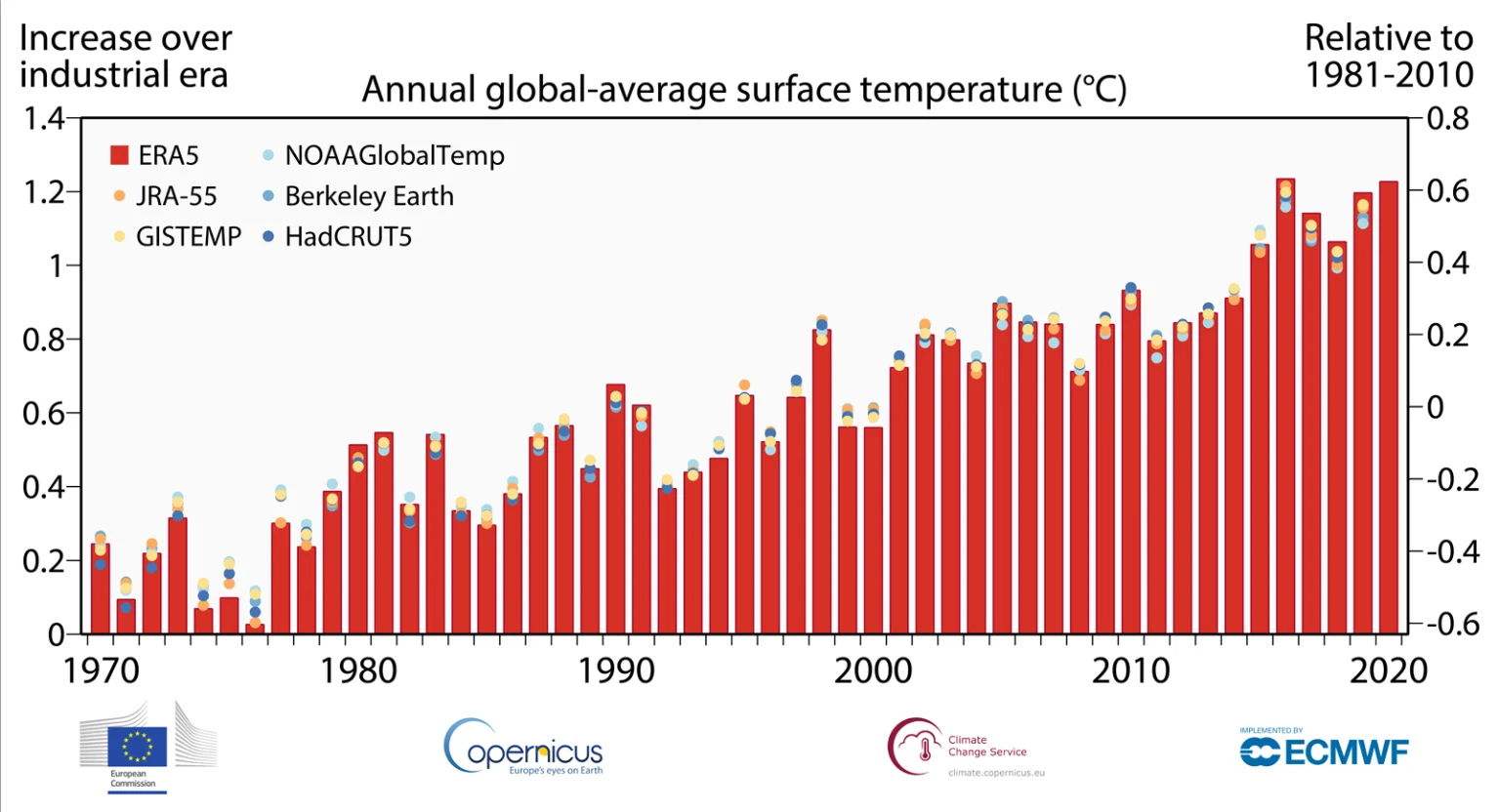
Annual global temperatures since the pre-industrial period (left-hand axis) and relative to 1981-2010 (right-hand axis). Credit: Copernicus Climate Change Service/ECMWF
NASA agrees that 2020 and 2016 are tied for the warmest on record. Their data shows that both years were 1.02°C above the 1951–1980 period. However, the agency also noted that 2020's temperatures may have actually edged out 2016's as the warmest. It was just that the margin for error in the data didn't allow them to call it.
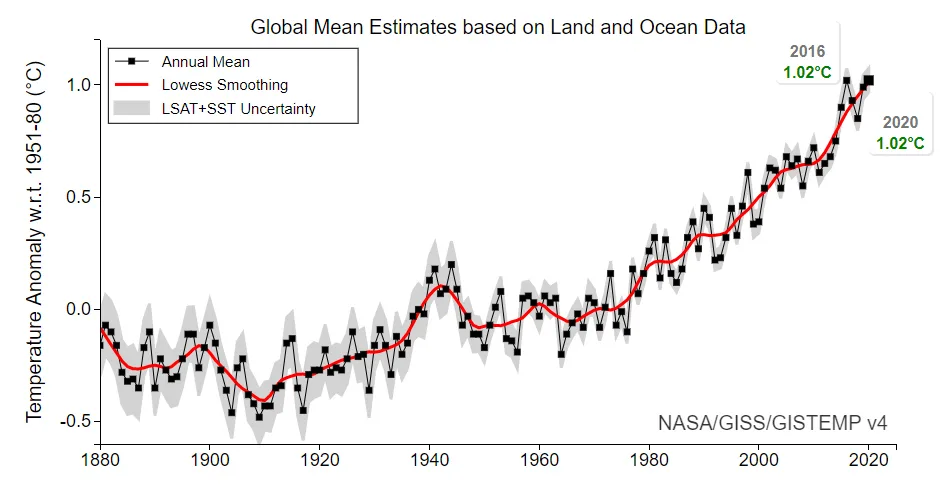
Annual average temperatures from NASA's records put 2016 and 2020 in a statistical tie. Credit: NASA GISS
"The last seven years have been the warmest seven years on record, typifying the ongoing and dramatic warming trend," Gavin Schmidt, the director of NASA's Goddard Institute for Space Studies, said in a press release. "Whether one year is a record or not is not really that important — the important things are long-term trends. With these trends, and as the human impact on the climate increases, we have to expect that records will continue to be broken."
Based on NOAA's tally, 2016 managed to keep a lone hold on the top spot in the list of the hottest years on record. NOAA reports it was extremely close, however, with 2020 coming in second at 0.98°C above the 20th century average — just 0.02°C behind 2016's record.
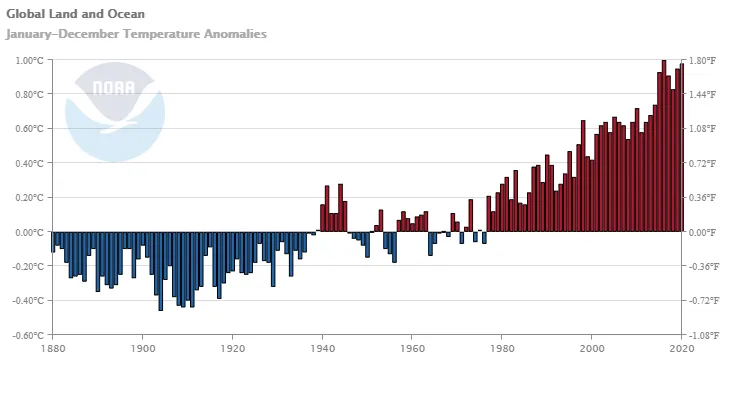
Temperature records from 1880-2020 from NOAA show this past year just slightly behind the hottest year on record. Credit: NOAA NCEI
With a record-setting El Niño pumping excess heat from the oceans into the atmosphere in 2016, it was no surprise that year took the top spot in the list of hottest years. In contrast, there was a weak El Niño in place to start 2020 (nowhere near the strength of the 2015–2016 pattern). Then in the latter half of the year, the equatorial Pacific slipped into La Niña conditions, which tends to cool things off rather significantly. Simply based on that, it didn't seem like 2020 should come this close to displacing 2016 from its record.
Remove the influence of El Niño and La Niña, as shown in the graph below, and the reason for 2020's current ranking becomes more apparent.
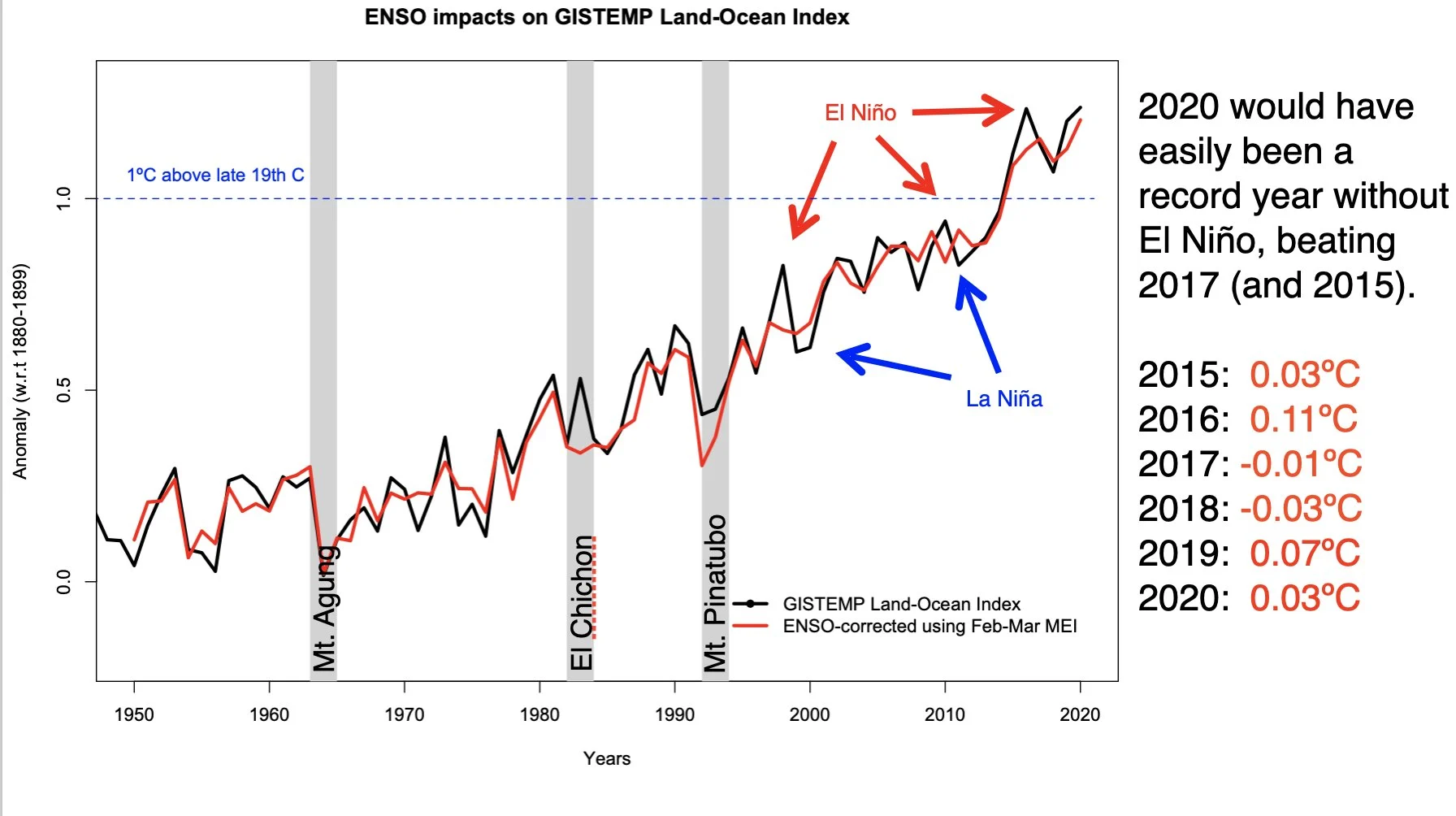
Global temperatures, up to 2020, with the impacts of El Niño and La Niña removed (in red) reveal that 2017 would have been the hottest year on record up until 2020, which would have easily displaced it to set a new record. The numbers along the right, in red, represent how much that year's El Niño/La Niña pattern added to subtracted from the global temperature average. Credit: Gavin Schmidt, NASA GISS
Even with shutdowns due to the pandemic, global carbon emissions still rose, adding more greenhouse gases to the atmosphere. The Arctic experienced record heat in some areas, and sea ice came close to a new record low. Extreme wildfires broke out along the United States' west coast, in Australia, and in Siberia. The Atlantic hurricane season was also the most active on record, with 30 named storms and the highest number of landfalls in the United States.
Watch below: NASA's Lesley Ott explains 2020's place in the climate record
"So, while 2020 was a significant year, it's important to know that this probably wasn't an anomaly of a year," said NASA research meteorologist Lesley Ott. "We're likely to experience many similar years as the Earth's climate gets warmer."

